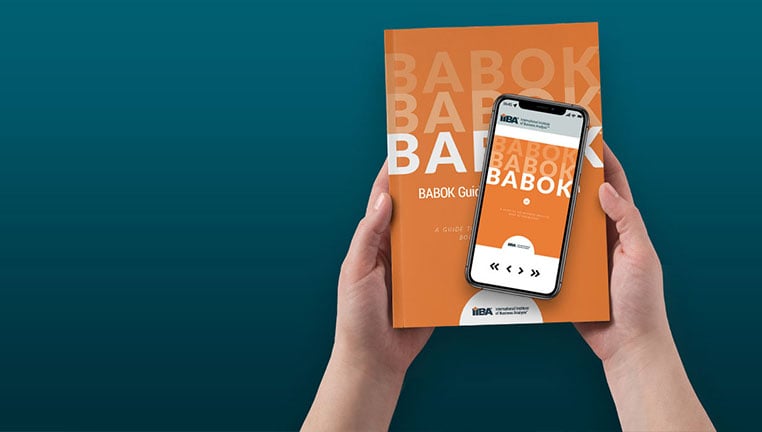Business Case Analysis – A Daily Practice
Receive free IIBA updates and exclusive content!
Originally published in the BA Lens Q4 issue 2018, this article about making conscious decisions is critical in business - now more than ever, so I thought I would share my perspective on the value of using business case analysis in your daily decisions.
Business cases are well understood as a rationale for making a change as outlined in A Guide to the Business Analysis Body of Knowledge (BABOK® Guide). Most organizations develop formal, well-documented business cases (also known as cost benefit analysis or proposals) for large, expensive, and mission critical projects. But business case analysis should not stop there. Business case analysis can be thought of as decision analysis and, since we make decisions every day, we should be analyzing business cases as a daily practice.

Become aware of how many decisions you make every day. For example: Should you stop for a coffee on the way to work? How do you make this decision? Without being aware, you are probably performing business case analysis. Do you have time to stop for coffee (tangible cost) or will the stop make you late for work (intangible cost)? Should you spend money on coffee (tangible cost) or save the money towards your next vacation (long-term benefit)? Would your favourite coffee drink put you in a positive mood to start the day (intangible benefit)? If you stop for coffee, are you also tempted to buy a pastry (add on cost and calories!)?
Often, we make these daily decisions unconsciously, sometimes out of habit. But for our organizations to thrive and succeed in the current, fast-paced, disruptive environment, we need to carefully think about every decision – making sure we are moving the organization towards its long-term goals and breaking old patterns which hold us back. (Remember the six most expensive words in business: We’ve always done it this way.)
Consider software development work where teams make hundreds of decisions about the placement of data on screens, the logic to edit data, and the wording of user error messages and instructions. Each decision should be made using rationale business case analysis. Consider the decision to add a new widget to a screen. Why do we need this widget (expected benefit)? How much time will it take to create and test it (tangible cost)? How much maintenance will be required (long-term cost)? Is this a true business need or a “nice to have”? Is there an alternative way to meet the need? Are there other widgets which are more valuable?
Thinking about tradeoffs isn’t difficult; it requires you to get in the habit of doing business case analysis every day and asking your team to think about each decision. As you ask questions about value and costs and tradeoffs in your elicitation sessions and team meetings, you will help your team make rational decisions. You will also help other team members get into the habit of asking these questions in their daily work. Next time you stop for coffee, think about how you are making the decision. Is the benefit worth the cost?
Need to look up a technique? Check out the searchable BABOK Guide Interactive Edition for members.

About the Author:

Barbara Carkenord, CBAP, is passionate about enabling people and organizations to succeed through analysis. She provides training and consulting to help companies improve their analysis maturity, consistency, and effectiveness. She combines her entrepreneurial and business analysis experience with her love of education to promote the development of the business analysis practice. During her career Barbara co-founded two successful companies and worked in varied industries including manufacturing, financial services, and software development. Barbara has worked as a leader, mentor, consultant, trainer, and instructional designer. She has written numerous books, articles, blogs, and training manuals all aimed at helping professionals enhance their skills including Seven Steps to Mastering Business Analysis. Barbara is on the board of directors for the International Institute of Business Analysis™ (IIBA®).
